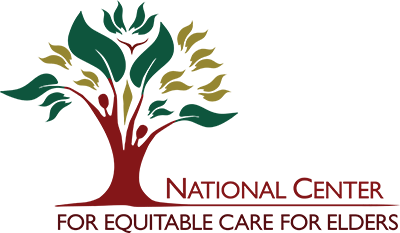 World Aids Day ¹ is an occasion for sharing resources with patients and clinicians to increase HIV awareness and knowledge and endeavor to reduce harmful social stigmas. For Cassandra Pierre, M.D., MPH, an Assistant Professor at the Boston University School of Medicine and Medical Director of Public Health Programs at Boston Medical Center, mindfulness in her conversations with her older adult patients living with HIV/AIDS is fundamental beyond the annual December 1st observance.
World Aids Day ¹ is an occasion for sharing resources with patients and clinicians to increase HIV awareness and knowledge and endeavor to reduce harmful social stigmas. For Cassandra Pierre, M.D., MPH, an Assistant Professor at the Boston University School of Medicine and Medical Director of Public Health Programs at Boston Medical Center, mindfulness in her conversations with her older adult patients living with HIV/AIDS is fundamental beyond the annual December 1st observance.
“As my patients have aged and their viral loads remain consistently suppressed on antiretrovirals, our conversations have shifted from discussions of medication adherence to the prevention and management of comorbidities such as hypertension, hyperlipidemia and diabetes,” she explained. “Knowing that patients living with HIV are at higher risk of cardiovascular disease, I've started having conversations about initiating lifestyle modifications (exercise, a well-balanced diet, and stress reduction) at younger ages, but these conversations become critical to have around age 55.”
Dr. Pierre noted that patients with HIV exhibit accelerated aging and are diagnosed with conditions associated with advanced age, including cancer, osteoporosis, and cognitive impairment at higher rates and younger ages than the general population.
“We also talk about the fact that they're likely to live a normal life span with continued antiretroviral adherence,” she said. “Due to the high mortality with HIV/AIDS seen prior to antiretroviral treatment, many older patients and long-term survivors living with HIV are surprised to find themselves alive and in fairly good health but are struggling with AIDS Survivor Syndrome, which encapsulates the profound physical and mental trauma they've endured as a result of the disease as well as the guilt and loneliness experienced from having outlived friends and partners who died from AIDS-related complications.”
For long-term survivors who have outlived their loved ones, Dr. Pierre said that social support is a critical component in maintaining their emotional wellness.
“As a consequence of living through the AIDS epidemic as well as a multitude of other factors, many older people living with HIV/AIDS are socially isolated,” Dr. Pierre said. “It may take some time for a caregiver to achieve, but helping to establish a supportive community – including peers whenever possible – around older people with HIV/AIDS helps so much and may lead to better medication adherence, reduced depression and anxiety.”
Dr. Pierre noted that those living with HIV have a higher risk of a spectrum of neuropsychiatric issues, including mood disorders like anxiety and depression and mild neurocognitive disorders all the way up to dementia, a risk that she said is compounded by AIDS. “It is important that behavioral health is integrated into the primary care of all patients with HIV, but it is certainly critical for older adults with HIV/AIDS,” Dr. Pierre said.
Her team at Boston Medical Center received feedback from older adult patients with HIV/AIDS that has inspired an HIV and aging pilot program. Those patients expressed concern with terms like “aging” and “geriatric” to describe themselves, as well as the fear that physicians other than a trusted HIV provider wouldn’t properly address their needs. “We've started to refer to our geriatrician colleague as a member of our team who is an expert in whatever condition our patient is being referred for, such as falls, memory loss, or failure to thrive, and explain that these conditions become more common as people get older, especially among those living with HIV,” she said. “This softened approach seems to be more acceptable.”
In honor of World AIDS Day, the CDC’s National Prevention Information Network has created a toolkit for HIV/AIDS resources ², which includes free resources for community outreach for your health center, a library of social media graphics and printable posters, and links to additional research. HIV.gov’s World AIDS Day page ³ also contains guidance for clinicians on clinical trials, as well as free printable resources, an HIV Testing and Other Services Locator, and federal resources to share with your older adult patients.
¹ www.worldaidsday.org
² www.cdc.gov/worldaidsday
³ www.hiv.gov/events/awareness-days/world-aids-day
